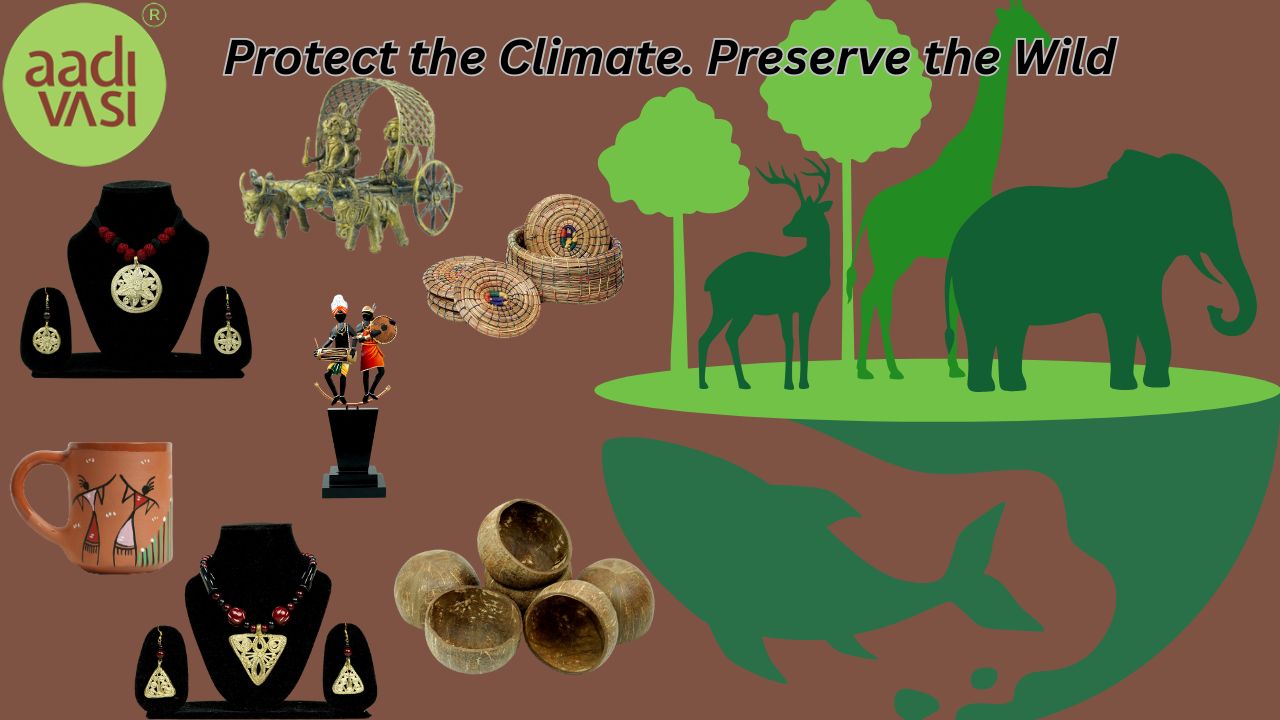How Climate Change Affects Wildlife and What We Can Do

How Climate Change Affects Wildlife and What We Can Do
There was a time when nature ran its own course, uninterrupted by human ambition. Seasons changed, rivers swelled, and creatures of the wild lived their lives, unbothered by what lay beyond their forests and oceans. But now, the story is different. The world is warming up, glaciers are shrinking, and wildlife and global warming are locked in a battle that many don’t even notice.
Everywhere you look, something is changing. Birds no longer migrate at the right time. Forests that stood for centuries now crumble under wildfires. Somewhere in the Arctic, a lone polar bear drifts away on a melting iceberg, unaware that the land it once called home is disappearing. This crisis isn’t just about numbers or scientific reports—it’s a tragedy unfolding in real-time, an unravelling of life itself. And in this changing world, even the way we give and receive must evolve.
Choosing sustainability in everyday life, including corporate gestures, is no longer an afterthought but a necessity. Platforms like aadivasi.org champion this shift, offering handcrafted products that support both indigenous communities and the environment. A reminder that every choice we make carries weight. Be a part of something bigger at Aadivasi.org®, India's first ImpactCommerce® website. For every ₹200 you spend, you create an impact by supporting a cause of your choice — and we thank you with products of the same value, absolutely free. Now that’s what we call Shopping for Impact.
A World That No Longer Feels Like Home
It’s easy to dismiss the impact of climate change and wildlife, especially when we’re sheltered by concrete walls and city lights. But step outside the bubble, and you’ll see the chaos. Rising temperatures aren’t just discomfort for us; they’re forcing entire species to either adapt or vanish.
How climate change affects biodiversity isn’t just a textbook concern. It’s in the bees struggling to pollinate, the turtles whose hatchlings never reach the sea, the whales singing their final songs in warming waters. The impact of climate change on animals is a silent catastrophe, happening every second, whether we see it or not.
When Balance Becomes an Illusion
Ecosystems have always been finely tuned symphonies, where every creature plays its part. But with habitat loss due to climate change, that harmony is fading. Fires rage through once-thriving rainforests, coral reefs bleach to skeletal remains, and oceans rise to swallow lands whole.
Predators lose their prey. Prey loses its shelter. Everything that once functioned like clockwork is now an unpredictable mess. And in this chaos, animal extinction and global warming have become an inevitability—unless we step in.
The Little Things That Might Just Save Us
The weight of the world doesn’t rest on one set of shoulders. Change, real change, happens when many move in the same direction. Protecting wildlife from climate change is about choices, about the small things that collectively make a big difference.
- Reduce Carbon Footprint: Walk more, waste less, think before you consume. Every action matters.
- Support Conservation Efforts: Those working on wildlife conservation in a changing climate can’t fight this battle alone. They need allies.
- Rewilding Efforts: Nature has a way of healing—if we let it. Protecting green spaces isn’t a luxury; it’s a responsibility.
- Spread Awareness: Because silence is the easiest way to let this destruction continue. The more people talk about climate change and threatened species, the harder it becomes to ignore.
Before It’s Too Late
It’s strange, isn’t it? The world is changing before our eyes, and yet we go about our lives as if tomorrow will be the same as today. But it won’t. Not unless we act.
The connection between climate crisis and endangered species is undeniable. But there is still a window—small, fleeting, but real—to turn things around. Saving wildlife from climate change isn’t just about them. It’s about us. Because in the end, when the forests are gone, when the oceans turn quiet, when the skies grow empty—what will we have left?
The battle isn’t over. Not yet. But the time to act is now.

